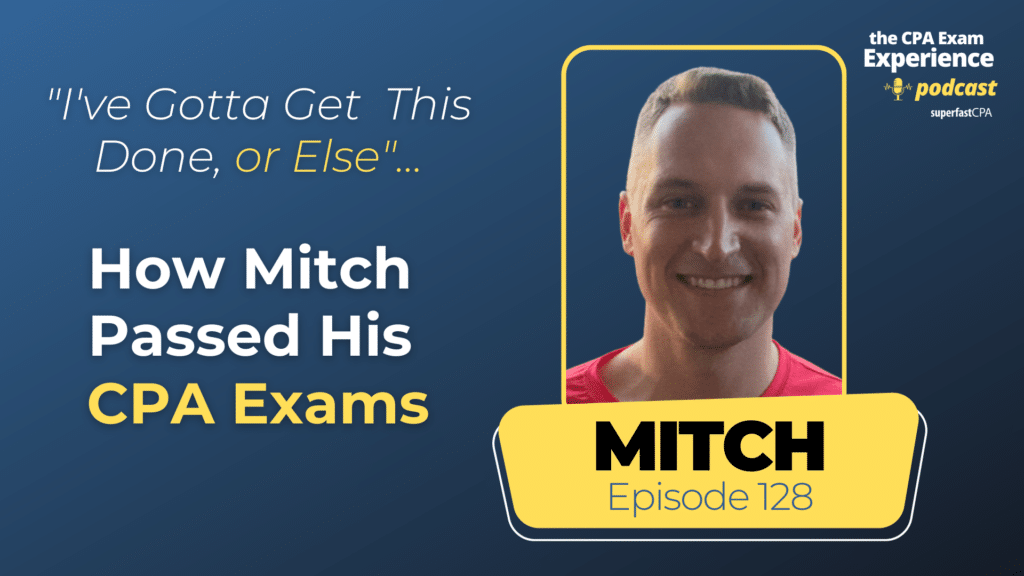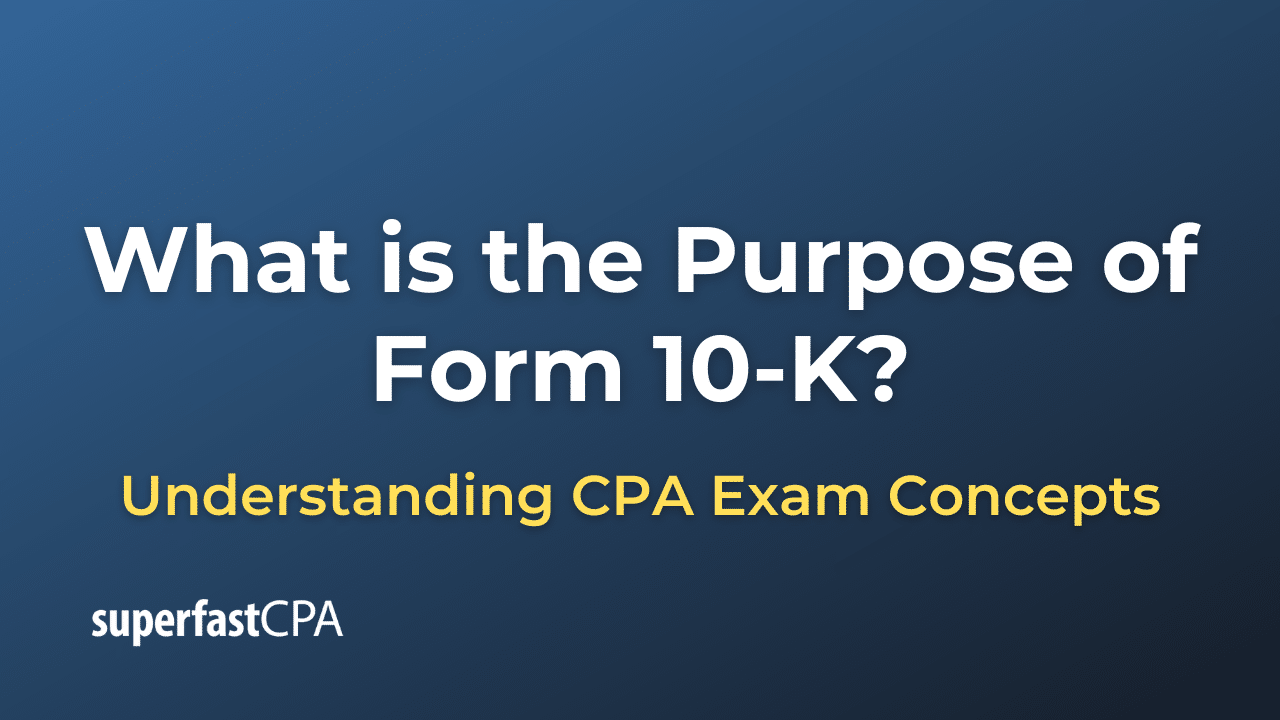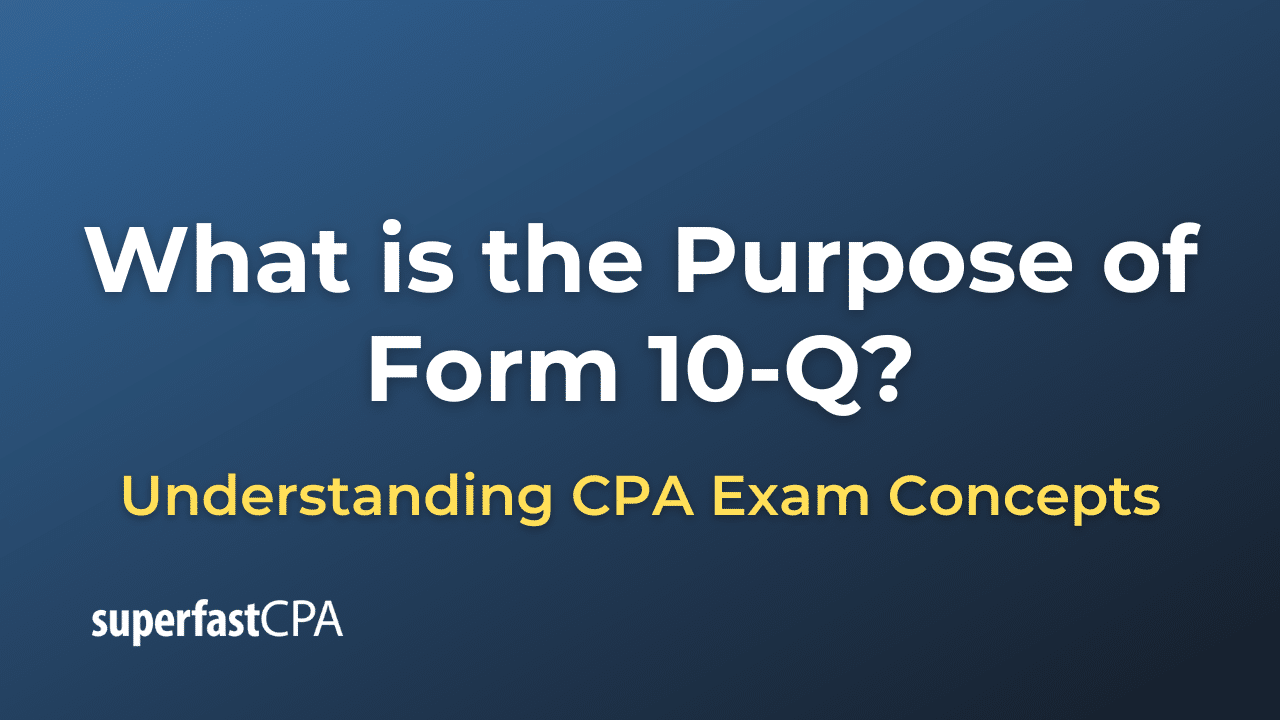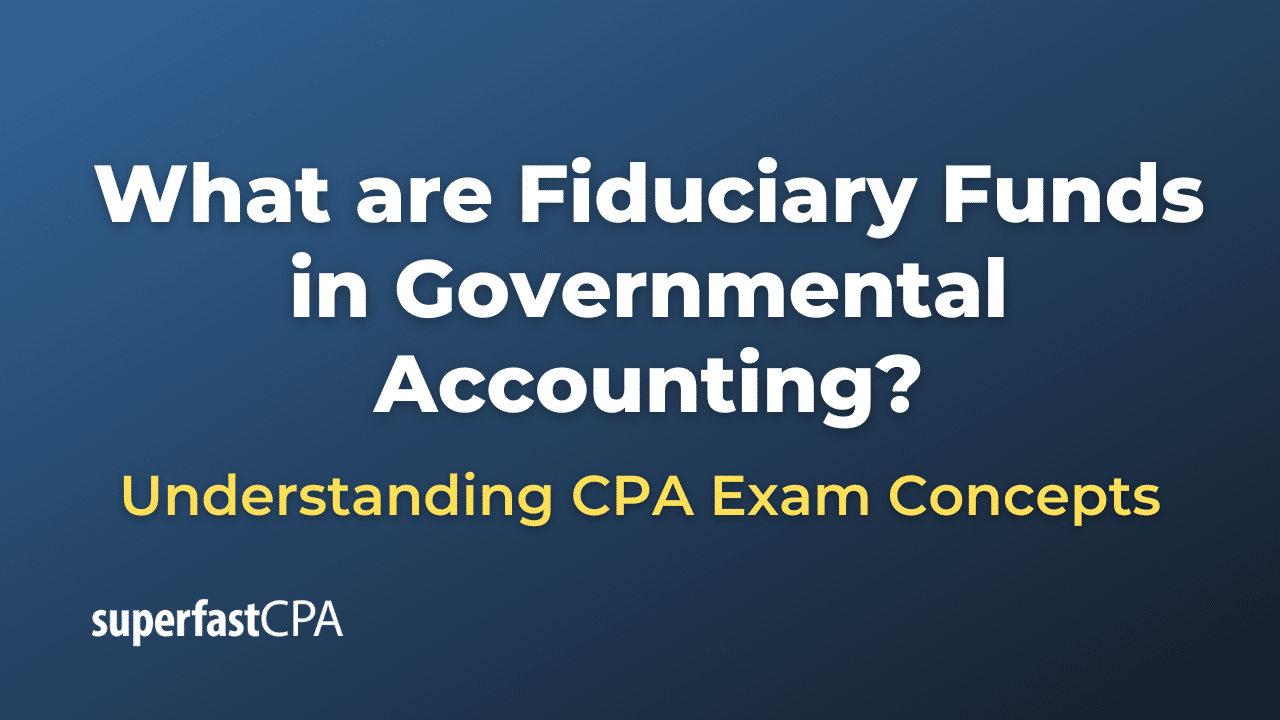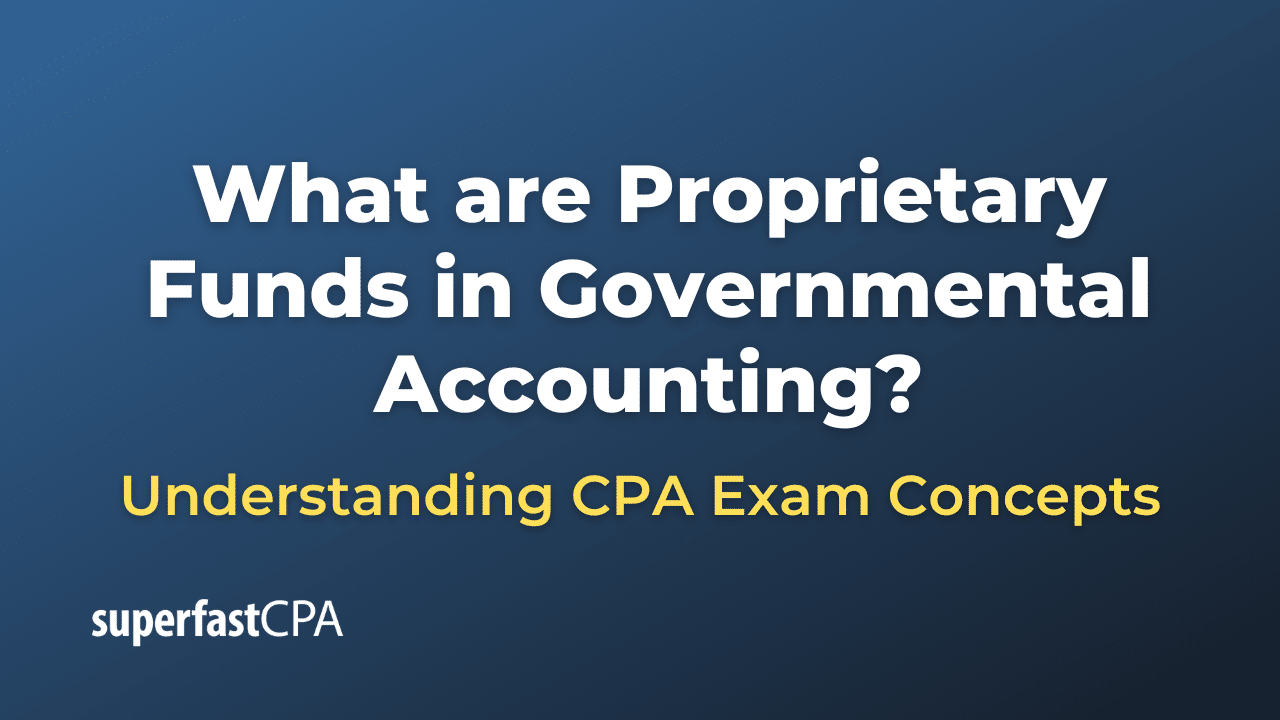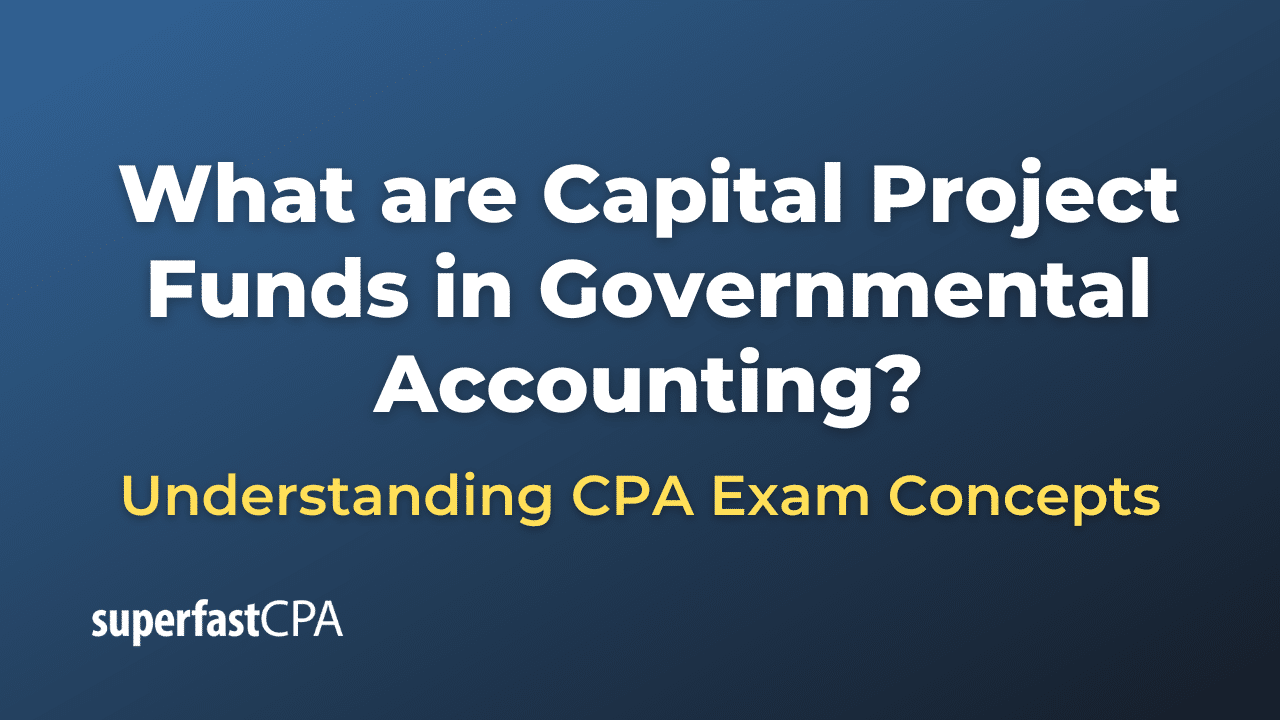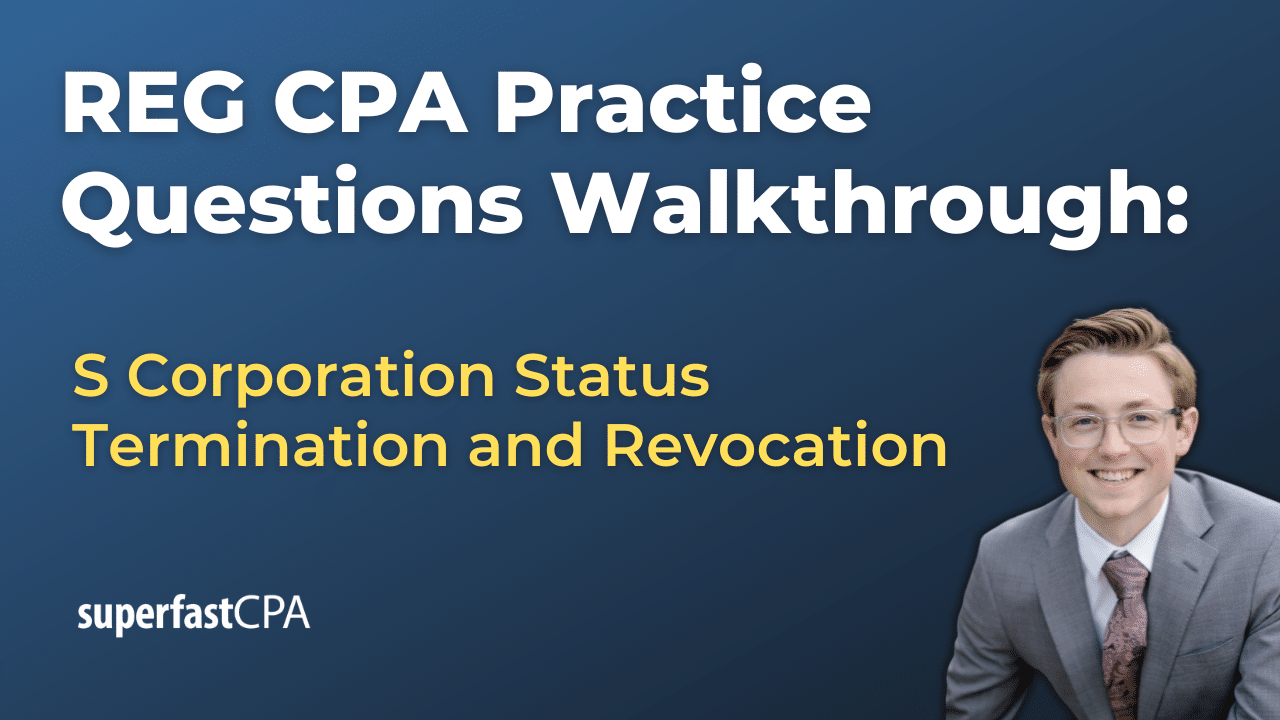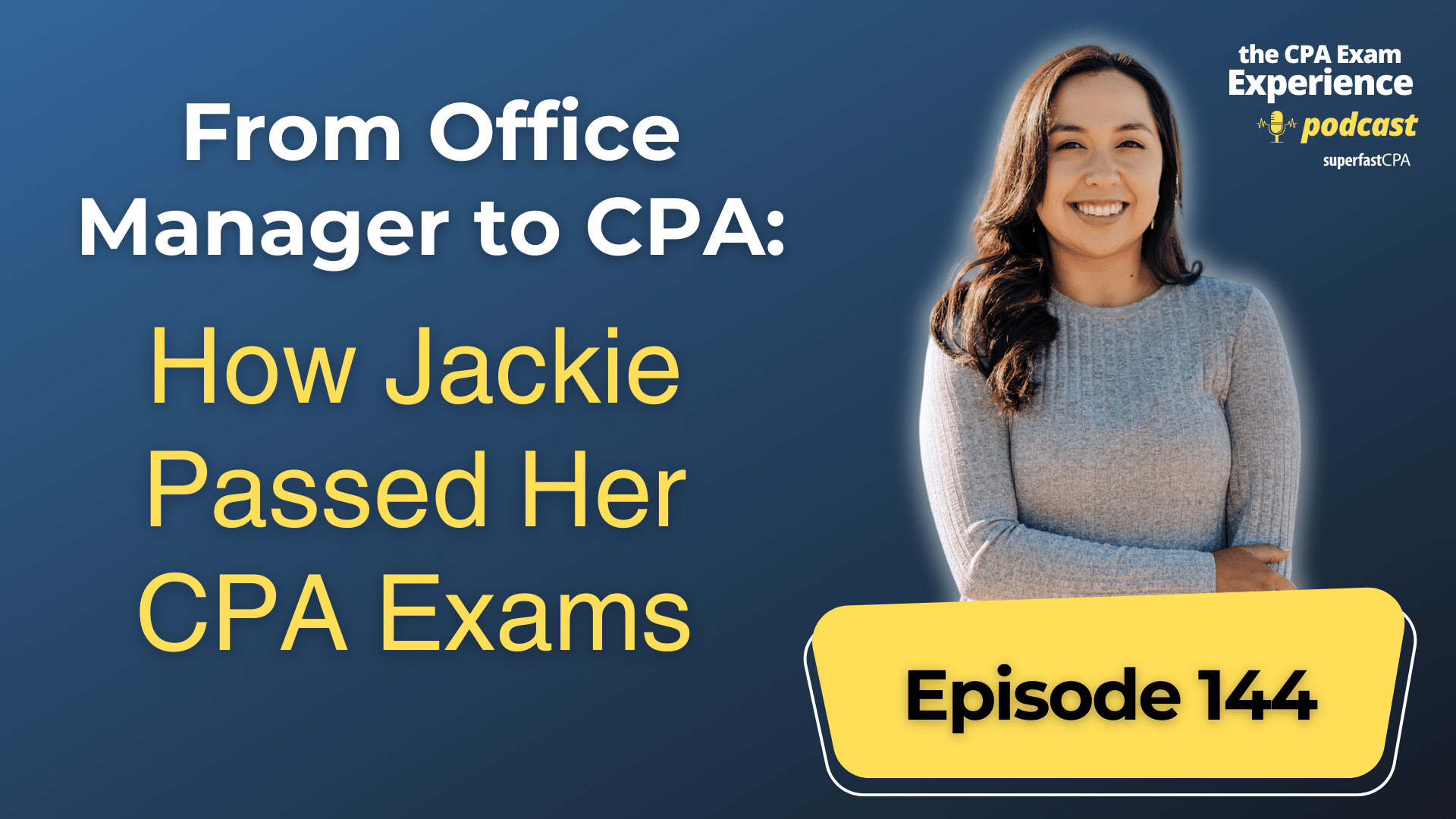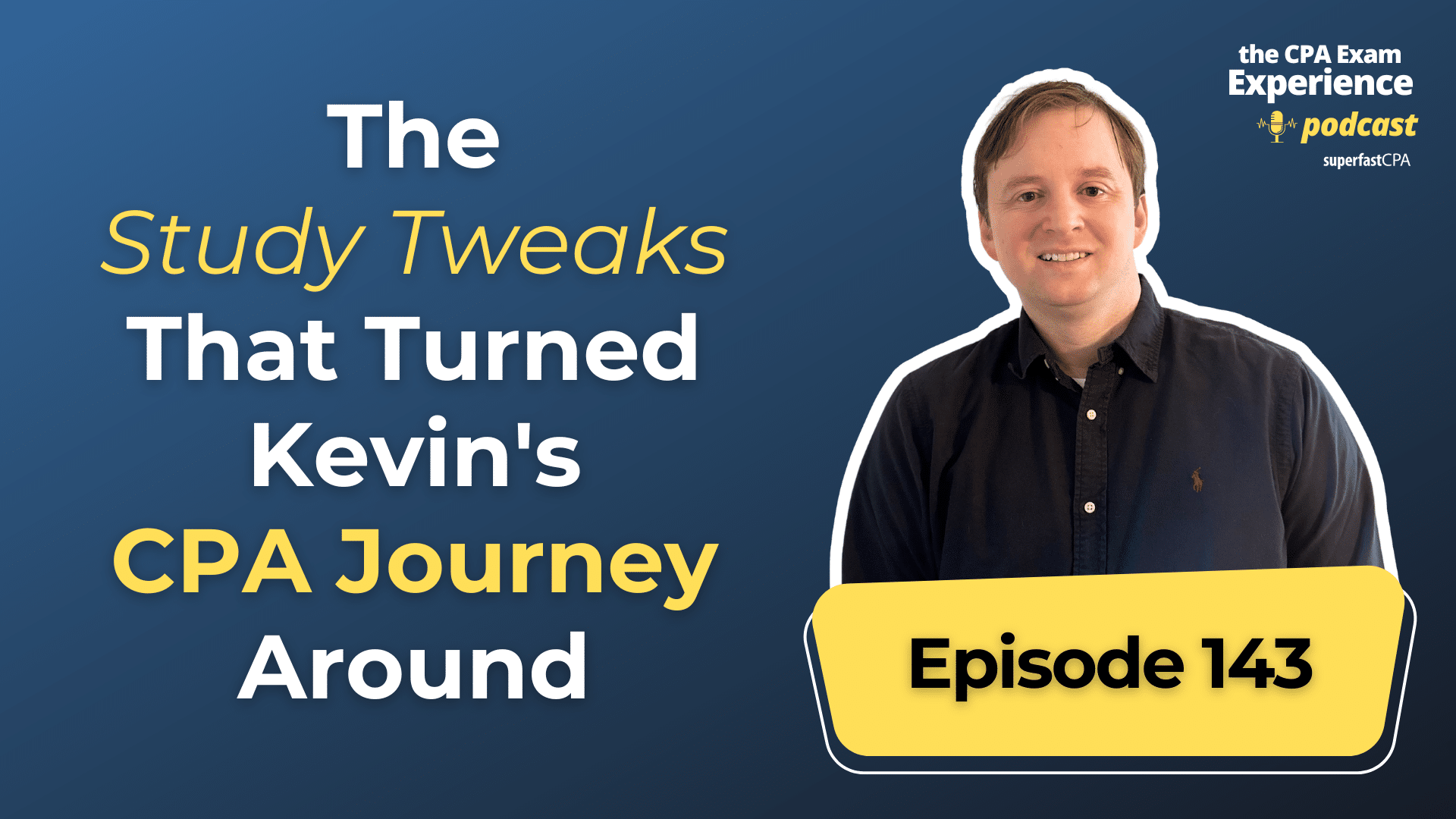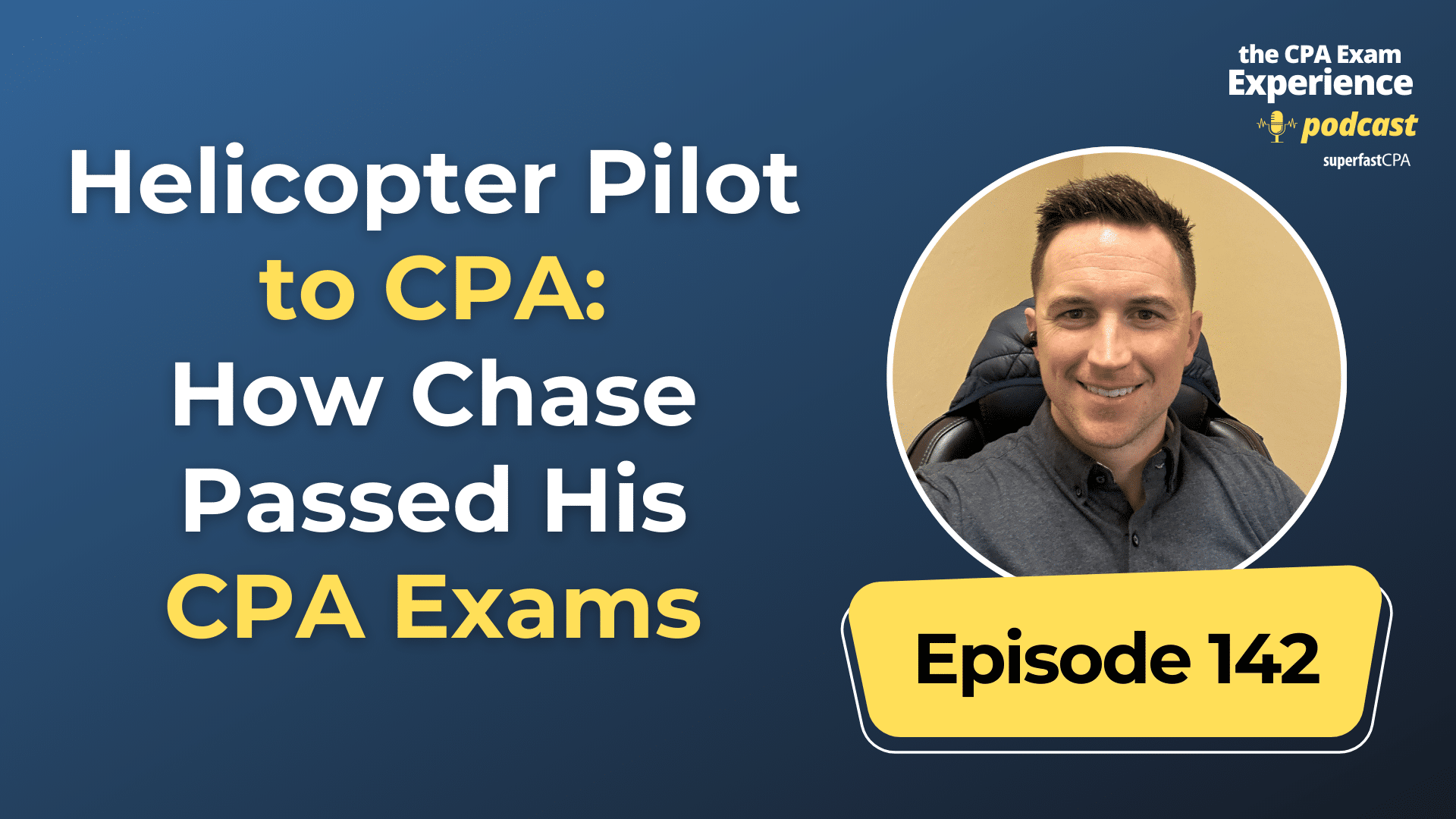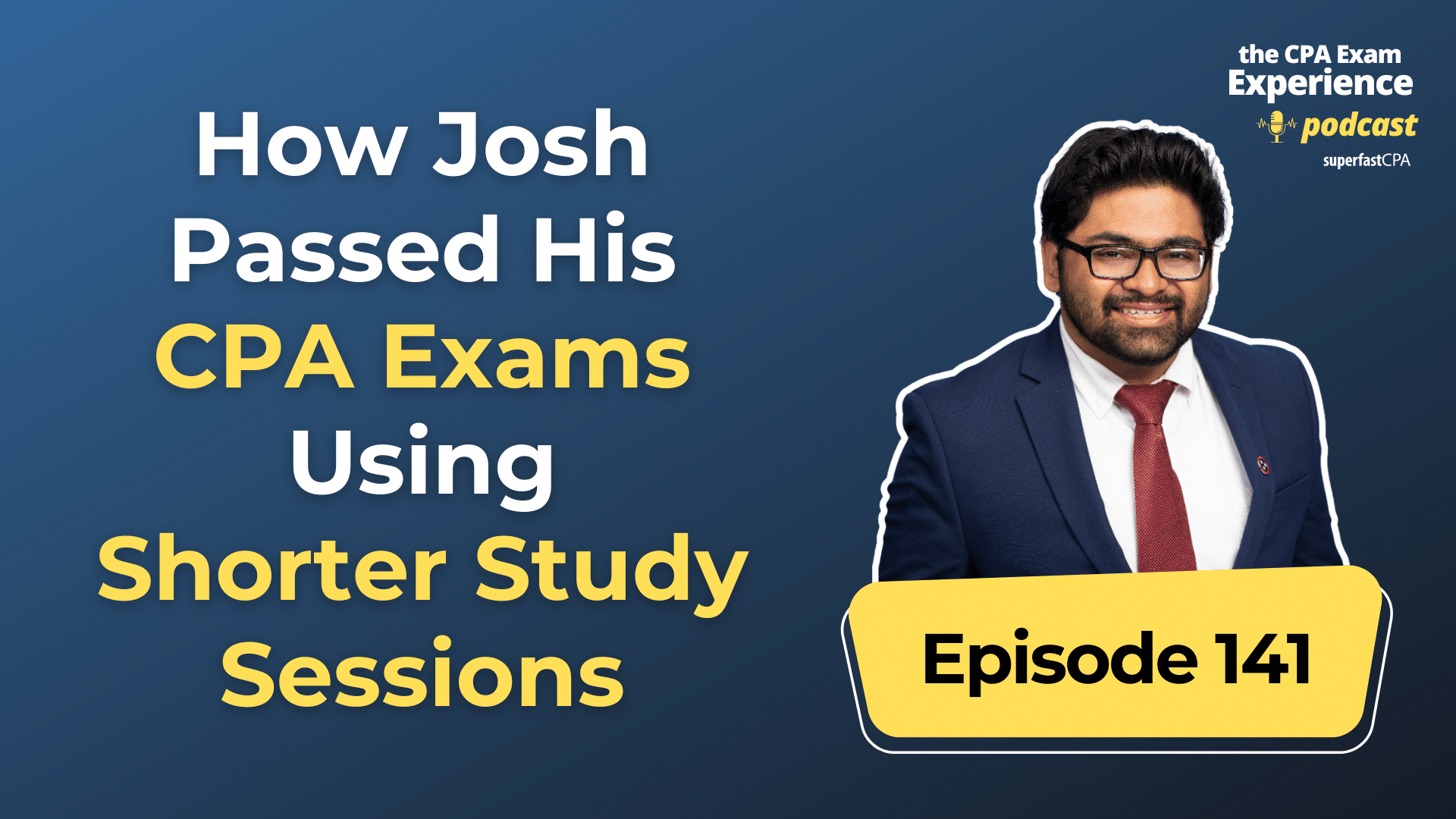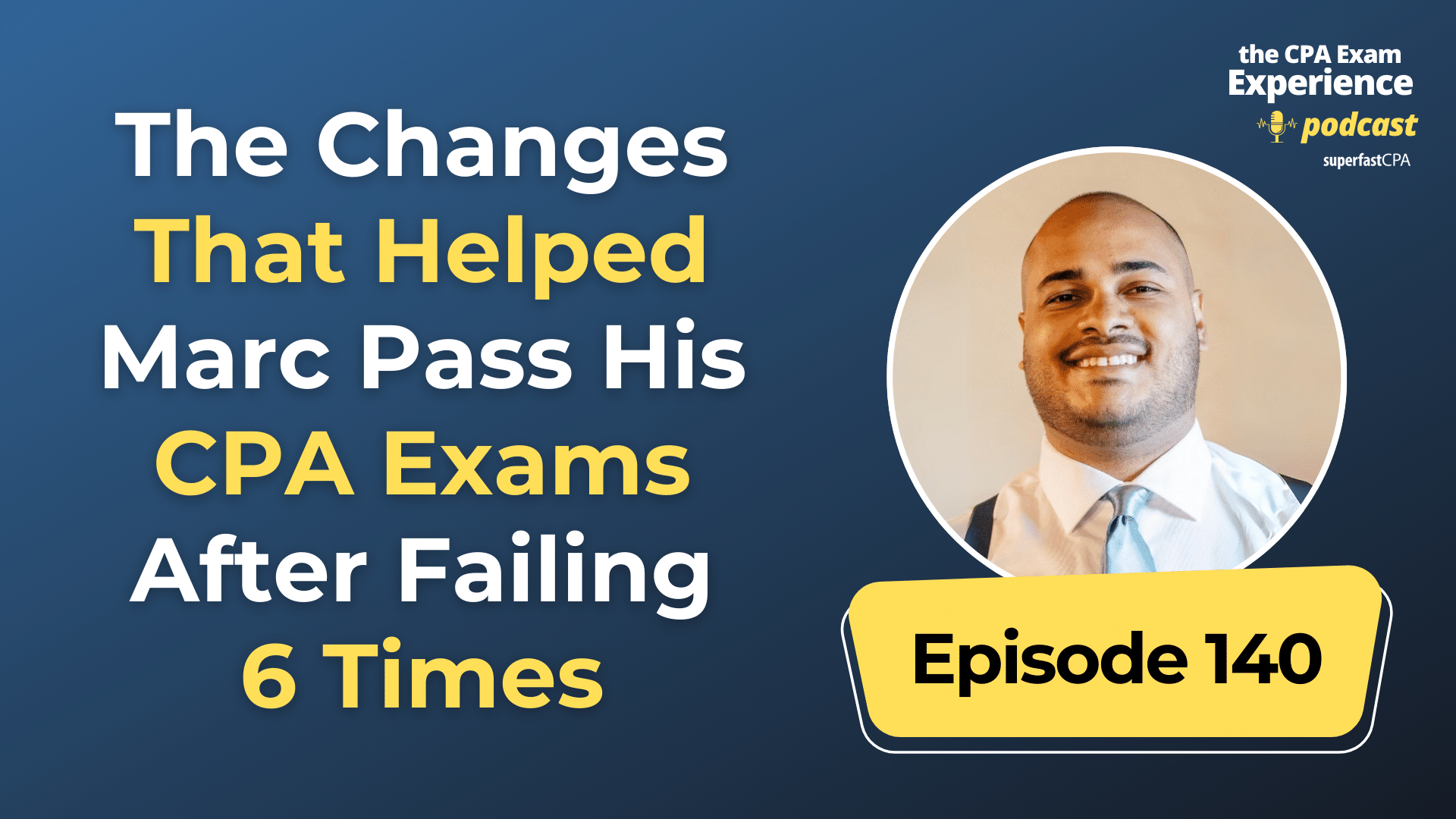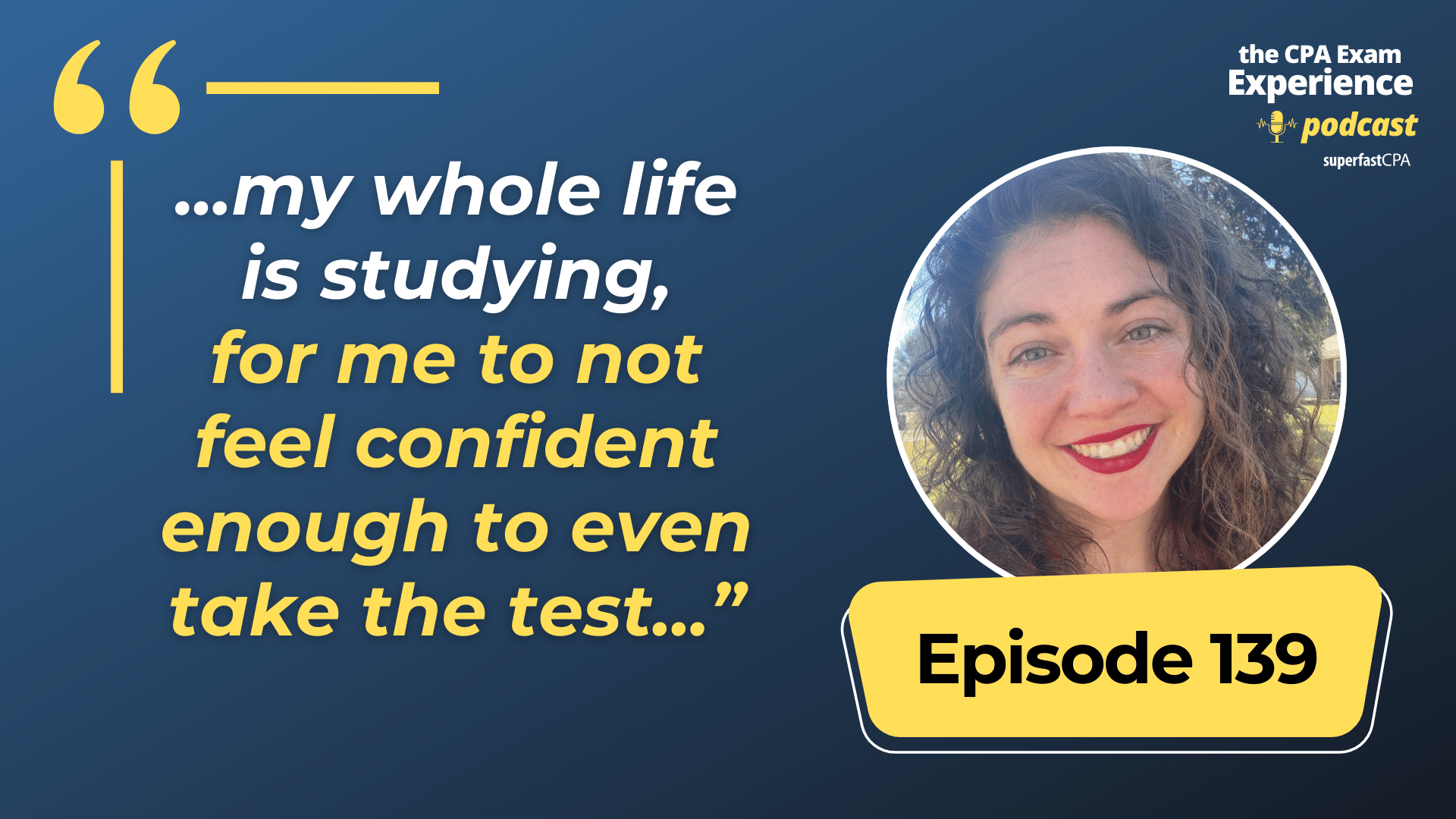In this SuperfastCPA podcast interview, you’ll discover the tweaks Mitch made to his study process that helped him pass his CPA exams after studying for several years off and on.
IMPORTANT LINKS:
Master your study process by attending one of our free study training workshops:
https://www.superfastcpa.com/study-secrets/
Enter our free monthly podcast giveaway:
https://www.superfastcpa.com/enter
Episode Timestamps
- 00:00 Mitch Bredberg Interview
- 04:32 The PRO Course Videos Helped
- 05:25 How Mitch Got Started with the CPA Exams
- 07:46 “This has to be the year I pass…”
- 09:48 Mitch’s Study Process Before SuperfastCPA
- 11:31 When the Normal Study Approach Doesn’t Work
- 13:31 “There was just so much to know and memorize…”
- 15:58 “No gimmicks, no catch, here’s the information you need to pass.”
- 17:35 Planting the Seeds: The Difference Maker
- 19:59 Superfast Strategy: So effective that he could study like that all day
- 24:15 The Feeling After Passing His First Section After More Than Two Years
- 26:08 Utilizing SuperfastCPA to Study Throughout the Day
- 29:29 Mitch’s Process for Making Flashcards
- 32:48 Coaching High School Football
- 34:06 Passing the exam and finally having his summers back
- 35:42 Mitch’s Wife Noticed a Big Difference
- 37:54 Studying on Weekends
- 39:38 How Much Time For The Final Review?
- 44:47 Passing the exam was “…almost poetic”
- 47:09 Top Tips for People Still Struggling with the CPA Exams
- 49:26 Applying the SuperfastCPA Strategies to the CMA Exams
- 51:16 Almost Got Four for Four After Switching to SuperfastCPA Strategies
- 55:39 Favorite NFL Kicker
Interview Transcript
Mitch: [00:00:00] When it was said and done, I, I went through four years of studying.
Four years of telling people off and, you know, not doing anything on the weekend really. Uh, I mean, I did do some things, but it’s just, you know, when you, when you get to that point, it’s kind of like the point of no return. Like I gotta get this done or else.
Nate: Welcome to another episode of the CPA exam experience podcast from SuperfastCPA. I’m Nate, and in today’s interview, you’re gonna hear me talk with Mitch. So, Mitch has a really relatable story. He was always disciplined, did good in school, when it came time to do the CPA exams, he got his review course and just assumed that, okay, I’m going to put in the time, work through each lesson, do the practice problems. And it’ll be a lot of hard work, but that’s what you do and then I’ll just pass these exams.
And it just didn’t work out that way. He was putting in the work, [00:01:00] being very dedicated to the point that he, I mean, he worked full-time in accounting, but he was also a football coach on the side. And so after a couple of years he decided, okay, this has to be the year. So he actually had to quit his job as a football coach to focus on the CPA exams.
Somewhere around that time, saw one of the SuperfastCPA YouTube ads about our free study trainings. He watched one of the trainings. Had a few light bulbs go off that how he could improve his own process. And as you’ll hear on the interview as to what those specifics were, that kind of helped him finally bridge the gap and make the difference.
And so, you know, it’s something I say all the time. These exams, they are not just a matter of raw intelligence, but at the same time, it’s also not a matter of just putting in a ton of study time. There has to be this aspect of strategic improvement or just strategy [00:02:00] in general, in your study approach and your daily process.
And so on that note, before we get into the interview with Mitch, our free study training webinars. That’s the first thing that Mitch saw and pretty much anyone you’ve heard on these interviews. So these free one hour webinars, we go through the six key ingredients of any successful CPA study process. So, no matter what review course you’re using, you apply these strategies. And if you’re doing all six throughout your process, it’s honestly hard to go wrong.
So these trainings are free, they take one hour, it’s a webinar format. The link to those trainings will be down in the description of this video or in the episode description, if you’re just listening to the podcast version of this. And so with that out of the way, let’s get into the interview with Mitch.
Mitch: Yeah. I periodically go on and see a few success stories. Yeah, and they’re pretty motivating. Like [00:03:00] if you’re someone who is just starting out or has, currently in the process right now of like studying for the CPA. Yeah. Um, it’s, it’s motivating from front to back, wherever, wherever leg of the journey you’re on.
Nate: Okay. Awesome. Yeah. So, and I guess going along with that, uh, if you’ve heard some, that’s basically how this will be. We’ll just talk through your study journey from start to finish. So, uh, at the time you filled out the little form thing to be on here. You were done with three. Is that still the case?
Mitch: So I’m actually done right now.
I passed the CPA, uh, back in July of 2022, so.
Nate: Nice.
Mitch: Uh, I thought I did email you. I I should have if I, if I didn’t, but, um, to let you know, but really.
Nate: Okay.
Mitch: A lot of the credit has to go to you Nate, because , uh, you know, in terms of the context and how you simply can [00:04:00] get the information, and I just, that’s how I can put it.
Just quickly get the information in your head and have that be a, a point of origin and have that be in the back of your head as you’re going through the, the chapters. And, um, each section of the CPA, whatever study unit or study, uh, material you’re using, whether it’s Gleim or Becker, um, but I found ever since I added your, uh, service that it’s just been a great help and quite frankly, the reason why I passed.
Nate: Awesome. Well, I’m happy to hear that.
The PRO Course Videos Helped
Nate: Um, so did you, uh, did you have our PRO course videos? Kind of sounds like you adopted our whole kind of strategy, like how to study and everything. Did you have the videos that like walk you through each part of the study process?
Mitch: Yes, and I researched it a little bit and saw your options through the email and through all the, all the videos on YouTube.
Uh, you know, as you’re maybe [00:05:00] watching a video and then you see your commercial. Um, so I went on and, and just saw all your options and just went with the best one because at the point in my CPA journey. I, I had just had it and just, just wanted to go with the best and, and see what I could do with it. Um, so, and I, and I went through all the videos, went through all the modules and, uh, it, it turned out well for me.
Nate: Awesome. Okay. Yeah.
How Mitch Got Started with the CPA Exams
Nate: Um, so let’s go back to the very beginning then, like when you very first started studying for the exams, what was it like? Like, how long ago was it? Just, yeah, let’s start from the beginning.
Mitch: So I started my CPA journey back in the beginning of 2018, and I used Gleim as my study provider, was going through each module, each video, and I thought that’s how it was supposed to be.
And then, you know, you get through one section and you schedule your test date for two months out [00:06:00] and that’s because that’s what they recommended. So I’m, I’m really, I’m really just doing what the study provider recommends for me. And I get to the test day and, you know, as you say in the videos, the test is completely what is, um, not like the studying that you do in your review to an extent.
Um, the study provider can prepare you for, um, the, the most it can, you know, to an extent, and then the tests will just be completely different, especially the simulations. And, um, I got a few test scores back, so I went through regulation, then I also went through audit, and I, I was, I wasn’t passing. Um, I was getting probably, you know, in the scores of 60 to 70, and I was really going through my head, like, okay, what’s, what’s wrong?
Like, what’s, how, how am I not passing these? Uh, is there something wrong? Like, am I not doing something correctly? Am I missing something? [00:07:00] And, um, that was pretty much all of 2018 and really into 2019 as well. And then, uh, so it was both those years. And I was really taking, um, some, a lot of time in between tests.
I was working full time. My career was just starting, uh, in corporate accounting. I also coached football on the side. So, uh, there was a lot, a lot of things going. Um, so with football, I was basically coaching 24/7 right after work in the fall, both of those years. And I got to a point in the end of 2019 going into 2020 and the pandemic here.
Like, man, am I really gonna get this done? And like, what am I doing wrong?
“This has to be the year I pass…”
Mitch: And again, halfway through, obviously, the pandemic hit, March, we were home. And I really hunkered down and said, man, like, this has to be the year I pass because I’m [00:08:00] home now more. And I have more time to study, even though I’m working full time.
You know, I’m not really, and then that was also the year I quit coaching because I wanted to really focus on the CPA get it done. And I came across your service probably in the summer of 2020 and really looked it over and even before then I had seen your commercials. I had seen your advertisements and you know with with kind of some of those, with all commercials, all advertising you immediately think so the average consumer or a customer looking at it, you know, it’s too good to be true or is this really gonna work for me?
And really that was me for the, the greater half of 2020 and at the end of 2019. So I could have started your service back in the end of 2019, uh, but I waited six months after the fact. And, uh, finally, uh, caved in and, and bought your [00:09:00] service with, with the PRO series and just started working through that.
Um, but yeah, to answer your initial question here, that was. My journey up to the point of getting the SuperfastCPA is, it was really just going through the the simulation of the study provider, Gleim which I did and getting my test date, but then also through, through all those modules, all that studying. I felt like I still wasn’t getting the context that I needed, um, and that could really hone in on my weaknesses and tell me what I was really doing wrong.
And that’s where SuperfastCPA, I think, filled in the gaps with that.
Nate: Okay. Um, so a few questions about that time period.
Mitch’s Study Process Before SuperfastCPA
Nate: Uh, so you go to work and then you’re coaching football. So when did you study?
Mitch: So I usually studied at night. I tried to get up in the morning to study, but that was… [00:10:00] that was hard in the beginning, um, because I had to be to work early.
And that, that of course was when I had to actually be at work. I actually work remote now. I’ve been remote for about a year and a half. So that’s been nice. So I usually studied at night for about two to three hours. I made myself dinner, and then, you know, I usually went to bed around 10 or 11, and then do it all over again.
So, I did have a pretty routine, uh, study habit through, you know, the non-football related months. Uh, but once it got to football, it was just like, okay, I, I really don’t have time. And, unfortunately, back then, I just put the CPA on the back border, back burner, and thought I could still pass. And that, when it comes to the actual CPA process, that’s not the case.
You, it’s, it has to be a disciplined approach every day. You’re sitting down and whether you like it or not, you just have to do it.
Nate: Right. Yeah. That’s a, that’s a funny, uh, thing. Like I think a lot of people [00:11:00] find that out the hard way because you know, a lot of people kind of go through college even, and it’s just really not that hard.
You can kind of show up to class, like you do your homework obviously, but you, you know, it’s just not that hard. And then the CPA exam is just, you, you can’t just kind of do this halfway thing because you’re intelligent. It’s, yeah, it just doesn’t work. A lot of people just get wrecked. Um.
Mitch: Yeah.
Nate: With the CPA exams for sure.
When the Normal Study Approach Doesn’t Work
Mitch: Yeah, you have to make it your top priority. Anything else that, and the other thing I hated too, um, but that was necessary, was just, I don’t know how many times I told people to, okay, I’m busy this weekend, I can’t do anything, like, I’ve said this to you before, like, I can’t do it, that was the hardest thing ever.
And eventually it got through people’s minds, like, okay, Mitch has got to just be away and like, no one bother him sort of thing, so.
Nate: [00:12:00] Yeah. And I mean, that kind of sacrifice, that’s one thing if it’s paying off, if you’re passing, but you know, like for your first two years, if you just kind of keep missing the passing score, that gets really hard because you know, eventually you start to think, why am I doing this at all?
If I, sacrificing nights and weekends, and it’s not even working, you know.
Mitch: Yeah, and to, and to add, one more thing to add to, uh, that journey. So I had taken regulation twice in that time span, and also audit twice. So in a two year time span, I failed four exams. And those two I started, those were important because regulation and audit, I didn’t start my career, and nor have I gone into public accounting so taxes and audit were brand new to me. So I was I was truly learning it from the ground up. Well, not really because of some of the class I took in college, [00:13:00] but yeah aside from that it was yeah I was just you know learning as I go.
Nate: Right. Yeah, and I think if you’ve never worked in audit at all I think audit could easily be the hardest exam just because it’s, I don’t know so much of it sounds the same but obviously it’s, um, the whole exam worth of questions, a lot of it just sounds so similar, anyways.
And if you’ve never worked in audit, it’s, um. So, okay.
“There was just so much to know and memorize…”
Nate: So you, when you start studying the first time, the first section, and you kind of go through the program, you’re doing everything you feel like you’re supposed to be with Gleim, um, once you got through and you’re close to test day, did it feel like I have no idea if I’m prepared or were you kind of like I should pass, I mean I should pass this because I’ve done everything I was supposed to do, I went through every lesson. [00:14:00] And was the failing score like a big shock or did you just kind of have this sense of, I’m not sure anything really got in my head over the last few months?
Mitch: The first time I took regulation and audit was, I felt like I did everything, but I also felt like I didn’t do everything because there was still some information to still learn.
Regulation and audit have a breadth of information. There’s so much to know. There’s so much to memorize. And for a person that hasn’t had that experience in taxes and audit before, it’s just almost going to feel overwhelming if you don’t have the right context in place when you’re going in the information for the first time and module by module because the, whatever study provider you have, I feel like they’re not going to explain the information in detail for you.
They’re already assuming that you know it based on college and all the credits that you had to [00:15:00] get to even sit for the CPA. So for the first two attempts, that’s how I felt like. But then the second attempts. Since I went back and tried to work through my weak areas based on the the letter that they send you saying, okay, here’s your weak areas in order to pass, you know based on you compared to other candidates who did pass I felt like that second time I had done everything and I still wasn’t passing so, and that again was at the end of 2019 so I was really just confused and, you know, aside from that, I was, you know, again, working full time. So at that point, I was just really overwhelmed and that’s when I was like, okay, there’s got to be some other way that people are doing to pass. So I have to supplement my study provider with SuperfastCPA, you know, like that’s all roads led to SuperfastCPA really.
Nate: Yeah. Okay. So yeah.
“No gimmicks, no catch, here’s the information you need to pass.”
Nate: So about that, [00:16:00] um, did you watch our free training or? Was it like, what made you decide to try our, you know, program or whatever, like add it to what you were doing? Was it you watched the free training and it made a lot of sense or was it more just, I’m just going to try this because I don’t know what else to do type thing.
Mitch: I honestly wanted to try SuperfastCPA. Number one, just to try it. And then number two, the way, honestly, you talk and the way you teach it, um, or the way you were advertising it, it, you came across as a very calm and just straight to the point person, no gimmicks, nothing, no catch, just here’s the information you need to pass.
And the biggest thing for me too, is I think I remember you mentioned when you go in on test day, all you need to do is just pass the, you just need to do enough to pass it. You don’t have to know everything, which I was doing. For those two years, and that’s what I really uncovered about [00:17:00] after I was even just studying for a week with SuperfastCPA was like you, you truly don’t need to know everything.
Um, you don’t need to be a professor of this, you just need to do enough to pass it. And um, but yeah, like, joining the SuperfastCPA, yeah, it was just really… Um, how you presented the detail, um, even in the ads. Uh, and, yeah, I just wanted to try it. It was just kind of a shot in the dark, but it worked.
Nate: Okay, so, yeah, so, okay, you, you get our program.
You, uh, watch the Pro Course videos.
Planting the Seeds: The Difference Maker
Nate: And then, I think obviously the main shift is like instead of watching every lecture and reading the textbook first, you just go straight into the questions. Was that kind of the biggest difference in study strategy or what what in your mind kind of made the difference from our strategies for you?
Mitch: Yeah, what, [00:18:00] that honestly was a big difference just going right into you know, planting the seeds first, right as you were mentioning in the in the training course. You know, you, you go through the notes first you, you and that multiple choice questions, you get the context and you go back into the the module whatever you’re doing or the videos. And then you, as you’re watching it or reading it, you have that in the back of your mind, that context, and then you’re pointing out as you’re reading, okay, that’s where this information is.
And then what I would do is you’re highlighting that information right there or starring it and going back to it after you’ve done your full review once you get closer to test day. Um, the way I was doing it before was just doing what the program told me to do. You watch the video first, you do some multiple choice, and then you read, uh, or, sorry, you do the video, you read, and then you do the multiple choice.
And then somehow you remember that as [00:19:00] you’re going through other modules leading up to test day, and then somehow you’re supposed to know all that stuff that you learned a month or two ago, uh, two months later, you know, a week before you sit for the test. So, your strategy with planting the seeds, going to the multiple choice first to understand what you need to know and how you need to know it through the context really put a light bulb over my head. Like, wow, this is, this is really like easy to learn now, for one. Why didn’t I think about this and like I should have been doing this all along.
I wasted so much time.
Nate: Yeah, I know that’s the thing is like some of the ideas just seem so obvious, but of course that’s not how most people study. Just ’cause you, I don’t know, you don’t know any better. And that’s also how college worked for the most part. It’s kind of like lecture, textbook, quizzes, exams, you know.
Superfast Strategy: So effective that he could study like that all day
Nate: Um, [00:20:00] so, uh, so within a week or so, you just, it felt like it was immediately easier or you could tell it was more effective?
Mitch: Yeah, and not only that, but I felt myself being more engaged and willing to sit in a certain location for hours on end, and I’m not a person that can sit still or, you know, being, be in a spot for a long time, like I have to get up after two or three hours, whereas after doing CPA, SuperfastCPA for an hour, a week or two, I was able to sit there for, you know, gosh, even on the weekend, like a Saturday or Sunday, I could sit there the whole day, uh, and do it like that.
That’s how much I wanted to get it done. And just, uh, have it out of my head.
Nate: Right. And I think what you’re kind of saying also is, our approach is very, again, seems so obvious, but you should never be really sitting there [00:21:00] for long, just staring at your computer for longer than like three or five minutes.
Like you’re always doing something if you’re actively studying. So it is a lot easier to stay engaged, and you know, like the whole thing, when you’re busy, time goes by faster. If you’re just sitting there trying to watch this lecture that’s super boring and you zone out every 3 to 5 minutes, um, you know, an hour takes a long time and it’s just really, really boring.
It’s not like doing the questions is like exciting or anything, but it’s just totally different when you’re like actively learning.
Mitch: Yeah, and the worst thing is just spinning your wheels and having that feeling of just doubt and dread, and then, you know, I would go to work the next morning and just keep thinking about it.
Just like, man, I gotta get this done. You know, when you get it done, and that’s, that’s part of it too, like, I changed my study habits. Not only, um, how I, how long I studied for, but also the time of day. Like, I would then study, I did what you recommended. [00:22:00] Like, studying in the morning, getting it done, and that way it’s kind of like making your bed.
You’ve already gotten something done for the day, and that you can feel good about. Um, and that you don’t have to worry about and then my, my evening, I mean, I would still stay a little bit in the evenings, but not as much as I did. Um, I would usually probably do like flashcards in the evening just to kind of reiterate a lot of the things I learned or relearned in the morning to, uh, solidify that, uh, that comprehension.
Nate: Yeah. So, right. So it just makes, like you just said, it just makes your, uh, when you nail it in the morning and you’re more or less kind of done or whether or not you study in the evenings for a little bit, you just feel good about, before you even start work for the day, you just feel good about what you’ve done that morning.
And so it just makes your, yeah, it’s not weighing on your mind, like you said. Um, you go to work, whatever that is, and then you’re just kind of dreading it in the back of your mind, like, [00:23:00] Okay, even if I have to work until six tonight, I’ve got to gear up and study for four hours after work. And so you’re just dreading that, and you’re just kind of, Like that makes you tired alone, you know, like just that added stress throughout the day.
So it’s just like a constant mental battle versus just it’s in the history books by 8 a. m.
Mitch: Yeah, and that’s, and that’s truly the best feeling that you can have when you’re on a, an odyssey like I was, you know, you, you go through, when it, when it was said and done, I, I went through four years of studying.
Four years of telling people off and, you know, not doing anything on the weekend really. Uh, I mean, I did do some things, but it’s just, you know, when you, when you get to that point, it’s kind of like the point of no return. Like I gotta get this done or else.
Nate: Yeah. Yeah. And that is a thing too. You know, like I’ve, I’ve said that before, everyone has to get to that point, like that point where you’re like, okay, I am so [00:24:00] sick of, you know, and it doesn’t, it doesn’t sound like you were half assing it or anything.
It’s just. I’m so sick of floundering with this. I am going to figure this out and like get this done. Um, yeah, everyone kind of has to get to that point.
The Feeling After Passing His First Section After More Than Two Years
Nate: So, so after, yeah, so basically three, three or so years until you started this way, what was getting your first passing score like?
Mitch: Oh man, it was, I couldn’t believe it at first.
You know, you, uh, I do those rituals where, you know, you do, what was in the past, like, people did like the no look thing, like, uh, they had the little eye icon in NASBA to go look, so I did that, um, and I had to look at it maybe five or six times, like, like how, like, I, I, I finally passed it, and, um, I don’t know what I, I forgot what I did afterwards, but I just couldn’t believe it, because at that, again, at that point, it had been [00:25:00] almost, uh, two and a half, three years.
And, um, it felt really good. And then from that point on, you know, I just implemented all the, all the tactics that you, uh, describe in SuperFastCPA and ultimately, you know, it ended good. So, um, but yeah, I’ll always remember that first passing score. It was, it was something to behold.
Nate: Yeah, and just a big, I mean, you said that, you know, switching to these strategies, you, you could immediately kind of tell it was just working better and made the process easier.
But obviously. That’s great. It’s like, okay, but am I actually going to pass? And so that first passing score is a, just a confirmation, right? That like, now I have this down, I can push forward. And then like the motivation, I’m guessing the motivation just comes a lot easier just because, you know, really it’s just, I got to do this every day and I’m going to pass.
Mitch: Yes. And my, my [00:26:00] score was a 83 on regulation where, you know, before I was getting sixties to seventies. So it was a huge, huge jump.
Utilizing SuperfastCPA to Study Throughout the Day
Nate: Um, what about, so you did the two hours in the morning. Did you use our study tools? Kind of like the mini sessions idea throughout the day?
Mitch: Yeah, so I would, I would go through, you know, the multiple choice.
You know, any new detail first. Uh, and work through those in the morning. And then, you know, and read your notes. And, that, that was also common place too, like during the day after that was constantly reading your notes throughout the day. I made binders, um, you know, the, the three hole punch and just, you know, going through them every day, highlighting key points.
And then along with that, you know, doing the flashcards, uh, doing the, the mini quizzes. Um, and, and, and I, uh, thought those mini quizzes were so helpful. You know, they’re so simplified. And again, we go back to your simplified approach. Here’s the, here’s the information that you need to know. Not, not necessarily every little detail.[00:27:00]
Um, especially what Gleiim was teaching me. Gleim tends to give you way more information than you need. Here’s just the detail you need to pass. That’s it.
Nate: Yeah, so, um, I do, like, that is true. Gleim, they really, I mean, their explanations are really good, but the other, on the other hand, there’s like never an easy question on Gleim like, even the most, you know, small, conceptual, single idea type question, they make it pretty complicated or, you know, the explanations are always like three or four paragraphs. Um, so I think our approach works really well with Gleim because you just, you learn so much from their explanations. But I think it can also be, uh, it’s, it’s harder than the real exam for sure.
Like across the board, their questions are more difficult, but I don’t know. It’s kind of a good and bad type thing.
Mitch: No, I, no, I, I agree with you. [00:28:00] Uh, there’s, there’s no sugarcoating it. Like there’s no shortcuts in Gleim uh, they give you all the detail and just assume that you’re going to learn everything.
And then, you know, they have like, okay, yeah, sure. People pass their, their sit, their program, but. You know, how many of them truly, like, grasp everything and, uh, and put that to use in their profession, right? After passing the CPA.
Nate: Right. Yeah. And sometimes, uh, I’ll hear that from someone who’s clearly new at the process.
Like if they’ve watched our webinar and they’re like, uh, Well, this is, it’s almost like they have an ethical issue with the, you know, just study the questions like study to pass. Um, and I would argue basically what you said is like, well, okay, like that’s kind of what accounting is. I mean, you come up with some new issue, you just have to find enough information to solve your issue for whether it’s for your, what you’re doing at your job or for a client.
It’s [00:29:00] not, you don’t need to go back to school. And take a whole class on that, the overarching topic. You just like, this is about finding the information you need. That’s really what the whole thing is.
Mitch: Right. Yeah, exactly. Yeah. Your direct contact, your boss is not going to care really how much detail you provide as long as it gets to the point.
And cause everything’s on a time budget these days. So the lesser, the better.
Nate: Yeah.
Mitch’s Process for Making Flashcards
Nate: So, um, so you mentioned the flashcards, so you just, did you kind of just do that the way it’s explained in the Pro Course?
Mitch: Yeah, yeah, just, you know, methodically going through it and making that a discipline, making that religious, um, and putting it in a way that you know what you’re talking about, um, you know, just, cause there’s ways that the study program, or whatever you’re doing, you know, in books, They explain it a certain way to where they know that they’ve explained [00:30:00] it well to you.
Um, so it’s important to just make sure you, you put it in words that you know how to, to know it. Um, and do it as simple as possible. That’s how you’re best going to know it. Uh, and not really rely on, you know, that study program really. Um, because when it comes to test day, you know, you have such a limited time.
And frankly, you’re going to feel a little nervous and a little panicked. And, in the back of your mind, you just want those easy mnemonics or however you’ve written those note cards to, to quickly remember and so you can jot it down and, cause what I did before the test even started, I would, cause you get the scratch pad, I would write down all these formulas and all, everything that I pretty much learned from the flashcards and, and wrote it all down within that time limit before I even started the test.
So I had it all there. So I, I try to think of all these ways, time management wise, that could help me with the test. And that’s part [00:31:00] of it too, that you teach in SuperfastCPA, like, how best can you time manage yourself wisely? Um, because if you, if you take both of those things, making it as simplified as possible, and time management, both of those, hand in hand, that’s pretty much the formula to pass the CPA exam. It really is.
Nate: Yeah, I was, yes, um, this is going to end up being in back to back episodes probably, but the, uh, the call I did yesterday, I was kind of explaining that idea, like every segment of the study process. So how you approach and reverse engineer, dissect MCQs.
If you’re strategic about that, that gives you a lot of advantages. If you, okay, practice sims the same way. How you take things and, you know, capture the understanding with the flashcards. You’re nailing it two hours in the morning so you don’t have to fight yourself. So like the two hours you do spend are more effective.
So you’re like laying, [00:32:00] layering all these advantages together. And uh, yeah, what I, what I say in those videos is like every part of the process matters. And there’s like synergy between all the different strategies and like how you, your daily routine. Um, it makes it like hard to go wrong if you’re just doing it all.
Mitch: Right.
Nate: Yeah.
Mitch: Right. And like in the middle of all those synergies is like this, the simplicity, make it as simple as possible for yourself. So you’re not confused and you’re not spinning your wheels. Um, because again, you have limited time of the day you’re, you’re working. Um, if you have kids, you’re, you’re, you’re telling your, you know, all of this stuff.
It, it, it can, it gets overwhelming if, if you don’t make it as simplified as possible.
Nate: Yeah.
Coaching High School Football
Nate: Uh, so the football thing, was it one of your kids you’re coaching? Was this like peewee or high school or what was it?
Mitch: Uh, it was high school, so, uh, okay. I was a, I was a former kicker in place, kicker in [00:33:00] college, um, at, uh, Ferris State University in Big Rapids, Michigan.
Um, but this was from my high school and I was a place kicker there, um, in high school, so I was a special teams coach, uh, for, you know, the kickers and the punters and the long snappers. And, uh, but so I was kind of on my own, you know, in terms of the other coaching staff members. Uh, but it was a, you know, a full time position.
I got, I got paid pretty good, uh, for, for what it was. Um, but it was, you know, two to three hours, uh, you know, and it’s, or not three hours, but it was, it was really two hours. But, you know, that high school was about half an hour, 45 minutes away from where I lived. So, you know, you get done with practice, you’re driving 45 minutes home.
If you don’t get home until like almost eight o’clock and then you still have to make dinner. And it just wasn’t gonna work out, uh, studying late at night like that, and then you have to get up for work at six and do it all over again. [00:34:00]
Nate: Right. Have you gone back to that now that you’re done?
Mitch: Uh, I do eventually, uh, not yet.
Passing the exam and finally having his summers back
Mitch: I actually did, um, so I, we, my wife gave birth to, uh, our, our daughter, um, so I’m a father now.
Nate: Congrats.
Mitch: Um.
Nate: Yeah.
Mitch: Yep, so, uh, she’s…
Nate: So after you’ve passed?
Mitch: So after I’ve passed.
Nate: That happened after you passed? Awesome.
Mitch: Yeah. So she, so she was born, uh, June 25th, 2022. And then I actually found out that I passed, uh, my final section, which was BEC, uh, about two weeks later.
So I’m like.
Nate: Oh, what a huge relief.
Mitch: Yeah, yeah, you’re not kidding. Um, so she’s, she’s eight months old now. Um, she’s doing good. She’s almost crawling, but yeah, you know, you think about. That’s another element to you. You want to, you want to make it as simplified as possible so that you can, you know, make room and get this done for all the things that are coming in your life, you know, like with kids, with, you know, a new job or, [00:35:00] you know, getting married or buying a new house.
Like you want to enjoy this stuff. Like you, like there was one, like the 2018, 2019 summers, even 2020, uh, I was studying nonstop in the summers. And, uh, I was kind of daydreaming and looking forward to, man, I can’t wait to finally have a summer where I just don’t have to read a multiple choice question or answer A and B, you know, or go through a simulated exam.
Ugh. So, I’m just glad it’s finally done.
Nate: Yeah, so one thing I’m always curious about, like especially someone with your kind of story where you had a few years where you’re putting in a bunch of time, it wasn’t working, you know.
Mitch’s Wife Noticed a Big Difference
Nate: And so, like, from your wife’s perspective, let’s say, she sees you studying all the time, like you said, you had two summers where you couldn’t even do anything, and then you, uh, like, adopt our approach, so, like, from her perspective, it probably didn’t seem like you were studying nearly as much as before.
[00:36:00] Did she ever say, like, how, what’s this, I don’t know, did she ever comment on that? Um, just the comparison between the two?
Mitch: Yeah, I mean, she was fully invested as, as was I, you know, and we kind of, you know, bounce conversations off, off one another. And I showed her the binders that I created and showed them like, okay, here’s the service I’m using, like, this is, this is going to help me.
And she, she definitely did notice, like, she, number one, she noticed like the improvement in my mood. Like, you know, I’m actually getting this information now, because usually in the past when I wasn’t, fully invested and fully get into the information and didn’t understand the context. I, I was kind of blown off steam afterwards and it was just frustrating.
Um, yeah, so she definitely noticed like, okay, now he’s finally getting it. Like this and it’s a lot more simplified. Um, and she definitely noticed too. I think it was the second or third, uh, section I [00:37:00] passed. I think it was, uh, FAR and I passed it in, in probably three months. Uh, whereas the other sections, I mean, it took me like a year.
Uh, so she was like, man, this is really working for you, isn’t it? And I was like, yeah, I’ve never passed a section in only three months. Like, this is amazing sort of thing. So that’s probably where it was the most, like just the difference in time. Uh, and that, that was hugely beneficial.
Nate: Yeah. I mean, yeah, that’s awesome to hear.
Right. Just a lot of, uh… A lot of positive things happening versus no wait, no nights and weekends, your whole summers, you know, you’re studying and you’re still not passing, you know, it’s just, it’s hard to, it’s hard to be in a good mood if that’s like what’s going on.
Mitch: Yeah, yeah, it was just, it was just tough.
Nate: Yeah. Um, let’s see.
Studying on Weekends
Nate: So you mentioned the weekend. So you would just try to. Just go longer, like do, [00:38:00] what, four, six hours on the weekends usually?
Mitch: Yeah, and I was going to get to that, so during the week I would try to get at least two or three hours in, in the morning, so I’d wake up at 5am, uh, before work. And then on the weekends, Saturday and Sunday, I would try to put in, gosh, six to seven hours a day.
Uh, or even, and once I got closer to test date, really try, like, reserve the whole weekend and just study the whole weekend. Non stop.
Nate: Okay.
Mitch: Um, and I, I think it came to a point where people, some people I told off, like, were underestimating how long, how long I could study for, because that just became so routine, like, that was just part of me at that point, um, and I was so used to it, so that once I got to test day, those four hours that you have for the test, that was nothing for me.
That, that went by like a breeze. I called them, like, celebration test day, because that was your day to, like, prove yourself, and just get through it. Um, [00:39:00] because that’s what we called it in football when I, when I, uh, kicked in college, you know, you go through practice throughout the week and you know, that’s your, you know, hard working time to get through the week so that you can get to game day.
Like, like that celebration Saturday, that’s your day to just celebrate the week sort of thing. So I just took that mindset from really football and put it into SuperfastCPA, the CPA study process and just got it done that way.
Nate: Yeah, that’s really cool. Um, and so, okay, I kind of the last study topic, I really want to ask you who your favorite NFL kicker of all time is, but we’ll, I’ll save that.
How Much Time For The Final Review?
Nate: Um, uh, anyways, um, last thing, uh, your final review, how long would you leave for that? And did you follow kind of our 48 hour cram session strategy or just what was your final review like?
Mitch: Yeah, I, I left it up to at least a week or even [00:40:00] two weeks to, based on the section. So regulation, I would say regulation and FAR were the two sections that I tried to free up as much time for my final review.
So that was the definitely two week time span just because of the amount of information, just memorization and the concepts and the context that you have to know. And then audit and BEC were just probably one week. Uh, just because I was more familiar with Audit after all the time I had spent with it and then BEC.
Um, I did have a lot of that cost accounting experience that is in BEC from corporate accounting. Um, so it’s, it’s based on, I guess, preference and then also how much experience you have with each section. Uh, that’s number one. And then, yeah, I did, I did do the 48 hour CRAM and thought that worked out really well.
Um, and you, you kind of have to do it just in a sweeping motion. Uh, don’t really focus too much on a specific topic, even if it’s, even if it’s your weak [00:41:00] area. Just kind of skim everything. Go through every topic. Do a lot of, uh, simulated exams, which I, uh, I took your information that was supplement and applied it to my simulated exams that the study provider gives you, uh, which, which really helped to, um, as long, as well with the flashcards and then day of. Doing your flashcards on your, on your drive, um, doing the audio notes in the car. And that’s one thing I forgot to mention to you throughout this whole process was I, I was constantly listening through the audio notes. Um, and, and following, if I, if I didn’t have my binders with me, I was doing that in the car.
And then at night before I went to bed every night, I was doing the binders with, you know, following along pages wise with the audio in. And that really cemented my learning, uh.
Nate: Yeah, so we just released a new study tool in the app that, uh, that does that because that kept getting mentioned on [00:42:00] these interviews, people would either read the notes on the phone and play the audios or some version of what you just said, and, uh, every person that’s done it. Well, yeah. So they were being interviewed for this podcast.
So it means they passed, but, uh, they, uh, said that they felt like that was probably the best retention thing that they did was reading and listening. So anyways, just last week, we finally got that put in the app work. We, I don’t know, we’re calling him the follow along notes. So you can just press play and it plays the, there’s like a highlighters on the word.
So the text goes and it just does it for you while you’re hearing the audio. Uh, anyways, now that you’re done, you’ll never use it, but it just is that, that idea in one, one tool.
Mitch: That’s excellent. That’s going to be a nice feature. Um, and it’s funny, too, when you mentioned in the past, like, it’s funny how you remember songs, like, from Taylor Swift or, you know, some [00:43:00] other big time name.
And that just made all the much sense to me, too. Like, how can we remember something that happened ten years ago, like, from a certain song or some TV show? But then we can’t remember how, uh, the songs, a certain formula works. Like it’s crazy.
Nate: Yeah. Yeah. Just constant repeat exposure. Um, it’s how you memorize songs you’re not even interested in memorizing.
So the audios, it’s not fun to listen to those over and over and over, but yeah, it’s just kind of like the idea of, okay, you’ve committed thousands of dollars to this process. I mean, lots if you consider your college degrees. Um, your nights and weekends or time, just tons of time. So, you would do, you should be willing to do any little thing that gives you an advantage.
Which, using your phone, you know, instead of music for a few months, you listen to audio notes. Or, um, instead of [00:44:00] scrolling Instagram or TikTok, read the notes, take quizzes. Just, just get this over with, you know.
Mitch: Right. And, you know, to your credit, I, I also have to say that Gleim had a very, um, intensive audio system too, where you could follow along in the notes just, but as you would expect, highly detailed and structural, your audio notes were just straight to the point and, you know, no nonsense.
And that’s what I love too. Like your audio notes were even better than, you know, Gleim’s. So just to, to put more, you know, eggs in your basket, like. You know, your, your system was just, you know, spot on in my opinion.
Nate: Awesome. Well, yeah, I’m, I love hearing that, obviously. And, uh, I mean, most of all, though, I’m glad it worked.
Passing the exam was “…almost poetic”
Nate: So, what did you, or, I don’t know, I mean, I know what you’re gonna say, but what was it like getting that last score, realizing you’re finally done after all this time?
Mitch: Yeah, it, it felt [00:45:00] amazing, actually. I was in, uh, yeah, I was in my bedroom, um, and it was, yeah, it was at night, and I was just, you know, I knew the score was coming out that night.
Um, you know, Lydia, my daughter, she had, you know, obviously just been born two weeks ago, and it was almost poetic, like, I was supposed to be there at that specific time, at that specific moment, um, and I read off the score, actually, that’s right, I didn’t read off the score myself, my wife did, because I, I was just too nervous.
It had been so long, you know, I, I, I didn’t think the Odyssey would be done, and she read it off, and, uh, said, yeah, said I passed it. You know, I guess I had a 79 and I don’t, I don’t know, again, uh, I think I cried a little bit. Um, and again, it was that night, so I couldn’t really do a lot, but at that moment, I, I wish I was outside running around, you know, doing whatever, um, you know, it’s just one of those feelings that you just truly can’t believe, uh, [00:46:00] just because it’s been so long.
It’s just been a long journey.
Nate: Yeah, definitely. Yeah, the sense of relief is just, yeah, I mean, there’s nothing like it. It’s not like you’re, I don’t know, it’s not like you’re deeply, most happiest moment. I mean, close, but the sense of relief for just this huge burden and then knowing you’ll never have to study CPA again.
Yeah, it’s just…
Mitch: And that was one of my main points. How you, uh, when you start SuperfastCPA, you’re supposed to write down all your motivation, uh, quotes or just whatever you want to write, um, to pass it. And, you know, one of my, uh, quotes was, you know, I, I just want to pass this to improve my future family situation one day.
Um, you know, to be in a better spot than I am now. Um, and just put this behind me just to say that I did it. You know, I, I put all my effort into something and I didn’t quit and I got through it. [00:47:00] And, um, Yeah, I just remembered that and it just came full circle at that moment.
Nate: Yeah, that’s really cool. Well, I’m happy for you.
Top Tips for People Still Struggling with the CPA Exams
Nate: And uh, uh, let’s, so last question I always ask, what’s, even if it’s stuff we already talked about, what would be your three biggest tips to, you know, someone in your shoes two years ago who’s still just kind of struggling trying to figure out an effective process?
Mitch: I would figure out first off, um, you know, whether you want to continue and keep putting in the effort, because I definitely felt that at one point, you know, is, is this truly, number one, what I want to do and do I want to keep going with this?
So find that inner motivation. Um, number two is, you know, find a, if, if, if the current system that you’re working with, uh, isn’t working to your standard, or if you think there’s something better, don’t feel, don’t be afraid to, yeah, reach out to SuperfastCPA. [00:48:00] Um, and, and try it out and, and see if it works for you.
There’s, there’s, there’s no, I mean, what’s the worst that can happen? You know, if, if it doesn’t work out, then you’re back in your, your old, uh, way of studying and the old process. Um, so see if it works and, and, and then just third is just like once you have SuperfastCPA or, I mean, any other service supplemental wise, you know, see if it works, see if it, um, helps you to achieve, you know, just that first passing score.
Especially in my shoes where I truly, you know, hadn’t gotten anything passed in two years. I mean, that’s highly, uh, detrimental to just your motivation. And, you know, just your successfulness, you know, later on in life. Um, and then, you know, finally just, you know, don’t give up. Uh, just, just keep working at it.
Uh, because eventually if you, if you truly do work hard enough, work does pay off, or hard work does pay off. Uh, I had numerous examples of that. Uh, growing up from, you know, seeing that from [00:49:00] other people, you know, in my, uh, football career too, um, you know, I, I was injured one year in my, in my college career and I missed a number of games, um, because of it and it, it was hard, uh, but I had to get through it, I had to go through, you know, kind of physical therapy and all that good stuff and, um, you know, I, I transferred that on to, you know, other things like right now with, you know, studying and, everything else.
Applying the SuperfastCPA Strategies to the CMA Exams
Mitch: I actually too, um, have applied this to, uh, the CMA exam.
So, I actually got through, uh, the second part of the CMA exam, uh, just recently this past Monday. Um, and I did pass the first part back in October. And I started the program, uh, back in, uh, actually right after I passed the CPA. Cause I thought, like, all this information is still in my head, why not? You know, let’s, let’s get through this.
And frankly, I applied. All the principles and training and all the [00:50:00] details you go through in your program to the CMA process. And I did it, you know, exactly like I went through the multiple choice first and just did all that. And it works on the CMA as well. So anybody that does the CMA too, it, it works there.
Nate: That’s awesome. We should try to, I get asked that a lot. Do you have like this, the study tools for the CMA? And I mean, we don’t, but. I should, I don’t know how many people take it or if it would be like, anyways, I should look into that. Um, yeah, just having the same set of study tools just for the, how many exams are there on that?
Is it two?
Mitch: Uh, it’s just two. So my gosh, it’s, you know, not to put the CMA down, but like when you just come off the CPA and four sections after four years It’s nothing compared to the CPA.
Nate: And so you’re you’re already done with that as well. You’ve since the CPA you’ve already finished that as well?
Mitch: So [00:51:00] I’m waiting on my score for the second part so that comes out in six weeks so I’ll know I’ll know my result in April midway. So I’m hoping that I pass that and just after that I’m gonna be I’m gonna be all done like.
Nate: Yeah.
Mitch: For a while. Um, it’ll, it’ll be done.
Almost Got Four for Four After Switching to SuperfastCPA Strategies
Nate: Um, so, so I guess I forgot to ask, did you go, uh, did you go four for four after you, you know, switched over and started studying this way?
Mitch: I, the only one I didn’t go for, didn’t pass on the first is, uh, FAR, but I passed on the second attempt. But. So, almost. Um.
Nate: Yeah.
Mitch: So yeah, it was, again, just a testament to your, your, uh, your course.
And, you know, just trying it out and seeing if it works. And, uh, it’s not, it’s not something that should be missed. You know, if you’re going on like for me, uh, it was like, I was just watching YouTube videos. And I found, you know, yours was a commercial, it just must have found me, you know how like [00:52:00] weird algorithms in the video, you know, it just found me.
And um, that was after like the 10th attempt, and I was like, might as well try it, like I’ve skipped over you well enough, you know, I’m just gonna go all in sort of thing.
Nate: Yeah, well yeah, so I guess that leads us to the just, yeah, again, congrats on being done, I’m glad you found us, I’m glad it made a difference, and uh, yeah, just, congrats.
Mitch: Thank you. Yeah. And again, thank you for, uh, providing that program and, uh, being that help to people who are truly lost, you know, like they wander the desert and are wondering, like, what’s, what’s going on? Like, what’s wrong with the way I’m approaching things? Like I, even for someone, uh, that might’ve done really well in college and high school, uh, in accounting and, um, You know, they, they get to the real world, they get to, you know, actually working full time, there’s a lot of things that college doesn’t teach you.
Yeah. Once you’re, once you’re working [00:53:00] professionally, you know, it’s, it’s all on you to get things done and to time manage effectively. Um, so any help that is, you know, out there, try it out. We have, uh, all the resources, all the resources that we could possibly ever need in this, in this life right now with the internet and just, um, everything available, so just.
Don’t, don’t doubt it. Right.
Nate: Yeah. Yeah. And that’s, um, I’ve mentioned this a few times, but like, you know, running this business, there’s all kinds of things I’ve had to learn. And it’s just, it’s amazing how I think a lot of people, like you said, you see a YouTube video for some course. And of course, there’s a lot of scams, like how to make money, YouTube videos, you see but uh, just courses.
Like if I need to know how to do something, Like how do I set up a web server or all these different things? I need to know how to do. You can find somebody who has a course who’s done what you need to know how to do. And in a [00:54:00] couple hours, it’s just like months of stuff that would have taken you trial and error.
You just go past all that just by. Okay, this person did what I’m trying to do and they did, you know, they have all their experience however long it took them It’s just the biggest shortcut. So yeah, I mean I buy courses all the time on all kinds of stuff because it’s just such a it’s like the best hack There is like someone’s done something you want to know how to do don’t spend two years on trial and error like in two hours you watch somebody’s course and You get all the secrets, you know?
Mitch: Yeah, and like the worst thing you can do is just quit and then realize, oh wow, like, Nate could have helped me pass in just a matter of like a year or even less. Like, that’s really all it, all it takes. That’s that easy.
Nate: Yes, and it, right, that’s the thing is like it has nothing to do with, like it’s hard to not take it personal if you’re studying forever and you keep failing.
[00:55:00] But, like in your example, I mean, basically every example we’ve had on the podcast. Really, it’s just you were just shifting how you spent time studying and then it just makes all the difference. It’s you still, your same IQ, you know, and so it had nothing to do with that. It was all about your strategy.
Mitch: Yeah, exactly. Uh, and, and just, yeah, just tweaking a few things. Um, not really inventing, reinventing the wheel, but just maybe more efficiently getting it to roll better. Right?
Nate: Yep. Well, uh, yeah, so I don’t want to take up much more of your time.
Favorite NFL Kicker
Nate: Uh… But I, being, being a kicker, are there any, uh, who’s your favorite NFL kicker?
Mitch: It’s gotta be Adam Vinatieri, uh, hands down. Okay. I grew up with, uh, Adam Vinatieri, you know, in the Super Bowls, the, the two Super Bowls he won, had that last second field goal. And just the type of person he is, he’s, it seems like he’s a [00:56:00] pretty low key, confident guy who’s pretty humble and, uh, just kind of takes it with a grain of salt, uh, you know, every game he was in.
Um. And just wins it for the team, but, and you know, he said he had a lucrative career, you know, with the Patriots and then the Colts, uh, my wife’s a huge Colts fan, so it was funny, you know, uh, she would always kind of joke around me, like, Mitch, it’s your guy, you know, he’s coming out there for a 50 yard field goal sort of thing, um, and it’s actually funny, too, at our wedding, you know how you can do, like, the, the video, you can pay someone to do a video for you, uh, so my, uh, my in-laws, uh, paid for Adam Vinatieri to do a video, uh, to, to talk about, you know, oh Mitch, you know, I heard you’re, you were a kicker in college sort of thing and, um, so it was really cool.
Yeah. So, um, but you know, I have a number of kickers that, you know, I, I looked up to, I, you know, I played soccer all [00:57:00] my life, kind of growing up until high school. Then I switched to, you know, trying out football kicking, uh, and that, you know, that turned into a scholarship and, you know, kind of the rest is history and I just, but I didn’t like it early on.
I grew into it, um, and, uh, it, it’s definitely worked out, so it’s taught me a lot. You know, it’s, uh, just, again, a lot of, a lot of that I took from sports to what I do now. It’s kind of, again, come full circle.
Nate: So did you have any, uh, in college, like, did you have any games that came down to you, like, one kick?
Mitch: In high school, I did. In college, uh, no. However, in college, there was one game at the very end of the season that, you know, it, it, uh, that game was riding on whether we were gonna outright win conference or not and, like, have a good stand in the playoffs for Division II. Um, but, yeah, there was one game in high school where I went out and, you know, nailed a 45 yard field goal that went to…
Nate: Wow.
Mitch: I think it was, [00:58:00] yeah, to win the game and, uh.
Nate: In high school, that’s big, that’s a big kick in high school.
Mitch: Yeah. You know, and back then not so, not so much now. Cause you got more, uh, programs for football kickers to, to get more notice, to get more scholarships in college back then. It was kind of like, wow, like you’re, you’re a good kicker in high school.
Like, where did you come from? Sort of thing. And, uh, you know, I just took what soccer gave me, you know, with the gift of, uh, kicking and then just convert that to football and the coaches loved it, so.
Nate: Yeah, I was, I mean, in high school, no one even did that. No one even attempted a field goal, like an extra point.
It was, uh, we actually, my senior year, we had a German exchange student and, uh, he was, you know, a big soccer player. And so he could kick the football, but like very little control, but there were a few blowout games where the coach put him in to like kick a field goal on a fourth down and anyways. But [00:59:00] other than that, like all the previous years, no one even tried it in high school from what I remember.
Mitch: Yeah. Yeah. I remember when actually kicking a field goal was actually two points instead of one point like for extra points.
Nate: Yeah.
Mitch: So, yeah. So weird times. Those were back then. I’m just glad that it’s, it’s now becoming more like the kicker is getting more respect now. Maybe not so much as a kicker would want, but getting more of that, so.
Nate: Yeah, well it is crazy, I mean, like, I think about that in, about football in general. The whole game is, you know, passing, running the ball. And then like so many games, especially the NFL, I mean, it’s so common because it’s so close. There’s so much parody, um, comes down to a kick and uh, yeah, it’s a, I don’t know, like it’s a, it matters a lot.
It’s so many games come down to the kicker. Yeah.
Mitch: Yeah. Yeah. Ice in the veins. I can’t imagine what’s [01:00:00] running through those guys heads. But you know, then again, they’ve ran through those scenarios so many times in their heads at that level with the money they’re making that it’s pretty commonplace. They just…
They just go out there and do it. They don’t think about it.
Nate: Alright, well, like I said, I don’t want to take up your whole day, but I appreciate you doing the call.
Um,
Nate: So that was the interview with Mitch. He had a ton of good info and tips and strategies and insights to share. So if you found this episode helpful, please take a second to find the podcast in whichever podcast service you use. Leave a rating and review. If you’re watching this on YouTube. Hit the like button leave a comment below about one takeaway or tip you got from Mitch’s interview.
And most of all, take a second to share these interviews in general, with someone you know, who’s also working on their CPA exams because these interviews, hearing person after person, the mistakes they made, what [01:01:00] they figured out what finally worked all collectively, these are the most helpful resource available anywhere for someone trying to figure out how to study effectively for their CPA exams.
So thanks for watching or listening, and we’ll see you on the next episode.

